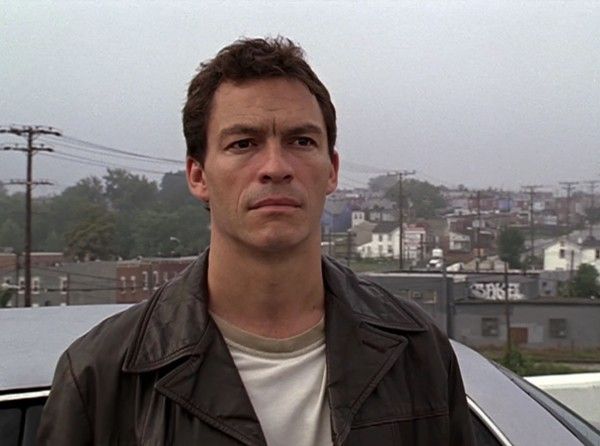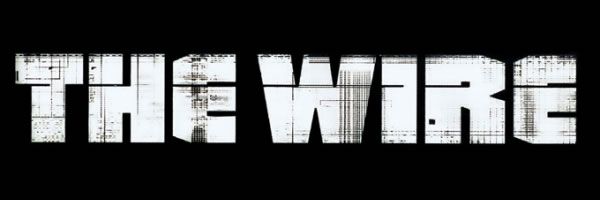Up until the past 15 years or so, television series were firmly episodic. Serialized TV (outside of mini-series) risked alienating viewers since it stopped anyone from coming in mid-season. However, with the rise of DVDs, OnDemand, and digital downloads, serialized TV series have become firmly established. Some shows still retain an episodic nature, but some series—particularly dramas—have been built around telling one long story over the course of an entire season. Our new feature, Seasoned, will review a TV series by season rather than by episode.Hit the jump for my review of the fifth season of The Wire. Click on the corresponding links for my reviews of Season 1, Season 2, Season 3, and Season 4.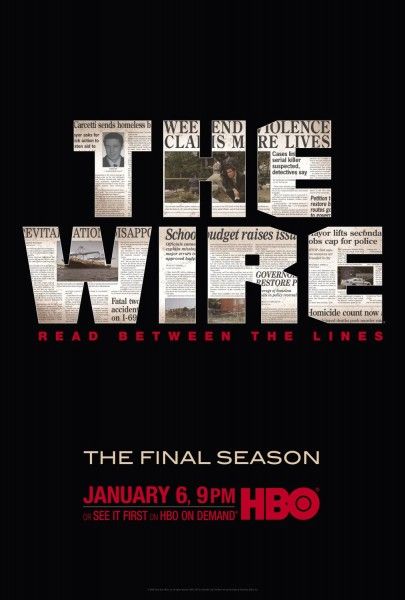 Over the course of its first four seasons, The Wire turned its eye towards cops, criminals, addicts, blue-collar workers, politicians, teachers, and students. In the show's final season, The Wire examined itself. Not literally, but creator David Simon used his past profession as a journalist at the Baltimore Sun to explore the tension between depicting Baltimore honestly while still creating a compelling, exquisitely crafted drama filled with interesting characters and rich conflicts. In my review of season one, I commented on how The Wire immediately set itself apart from all other crime shows by showing the nitty-gritty of the work involved, even-handedly depicting the criminals, and the bureaucracy that consistently got in the way of justice. In one of the many ways that season five brought the series full circle, Simon used the paper—and specifically its desperation for a sensational story—to comment on the dishonesty of other criminal dramas, and how corrupt institutions are built on the big lies.In one of the rare instances of an episode's quote coming from the cold open rather than after the opening credits, Bunk (Wendell Pierce) says to a fellow detective, "The bigger the lie, the more they believe." We're left to wonder what the "big lie" is regarding the series, because there have been so many. Ultimately, we'd like to believe the lie of a world of good and evil, of clear sides and easy motivations, and The Wire consistently refused to give us those comforts. In terms of Season Five's overarching plot, the big lie is McNulty (Dominic West) and Lester (Clarke Peters) inventing a serial killer in order to get their sorely needed funds to finish the Marlo Stanfield (Jamie Hector) case. In order to perpetuate this lie, they need the Baltimore Sun to play the sucker.The Sun is the new element, but it's the first time a new element was introduced but it didn't feature a connecting character from a previous season. Valchek (Al Brown) and McNulty connected the docks in season two, Burrell (Frankie Faison) and Rawls (John Doman) connected the politics in season three, and Pryzbylewski (Jim True-Frost) connected the schools in season four. The Sun operates independently until McNulty actively attempts to bring them into the investigation not as an organization that seeks the truth, but one that can be manipulated into selling the big lie.
Over the course of its first four seasons, The Wire turned its eye towards cops, criminals, addicts, blue-collar workers, politicians, teachers, and students. In the show's final season, The Wire examined itself. Not literally, but creator David Simon used his past profession as a journalist at the Baltimore Sun to explore the tension between depicting Baltimore honestly while still creating a compelling, exquisitely crafted drama filled with interesting characters and rich conflicts. In my review of season one, I commented on how The Wire immediately set itself apart from all other crime shows by showing the nitty-gritty of the work involved, even-handedly depicting the criminals, and the bureaucracy that consistently got in the way of justice. In one of the many ways that season five brought the series full circle, Simon used the paper—and specifically its desperation for a sensational story—to comment on the dishonesty of other criminal dramas, and how corrupt institutions are built on the big lies.In one of the rare instances of an episode's quote coming from the cold open rather than after the opening credits, Bunk (Wendell Pierce) says to a fellow detective, "The bigger the lie, the more they believe." We're left to wonder what the "big lie" is regarding the series, because there have been so many. Ultimately, we'd like to believe the lie of a world of good and evil, of clear sides and easy motivations, and The Wire consistently refused to give us those comforts. In terms of Season Five's overarching plot, the big lie is McNulty (Dominic West) and Lester (Clarke Peters) inventing a serial killer in order to get their sorely needed funds to finish the Marlo Stanfield (Jamie Hector) case. In order to perpetuate this lie, they need the Baltimore Sun to play the sucker.The Sun is the new element, but it's the first time a new element was introduced but it didn't feature a connecting character from a previous season. Valchek (Al Brown) and McNulty connected the docks in season two, Burrell (Frankie Faison) and Rawls (John Doman) connected the politics in season three, and Pryzbylewski (Jim True-Frost) connected the schools in season four. The Sun operates independently until McNulty actively attempts to bring them into the investigation not as an organization that seeks the truth, but one that can be manipulated into selling the big lie.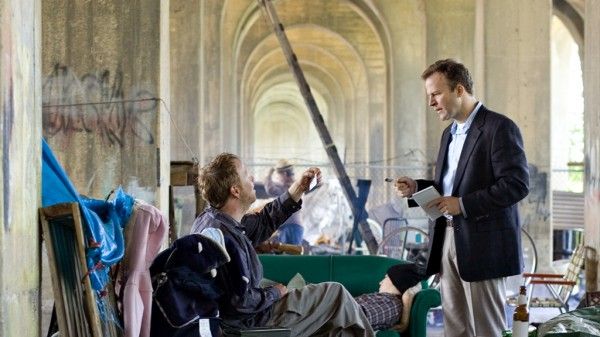 And no one is more willing to sell that lie than reporter Scott Templeton (Tom McCarthy). At the beginning of the season, we can see the desperation of the paper, and how it's cannibalizing itself in order to stay alive. They buy-out reporters who cover a beat, the paper can no longer cover that beat, people get their news from someone who can cover that beat, circulation continues to decline, so the paper has to buy out more reporters. In this kind of environment, a lazy opportunist like Templeton can thrive. The underlying tension between Templeton and city editor Gus Haynes (Clark Johnson) comes back around to the meta-textual tension of the show itself. It's the fabulist against the journalist, and survival favors the fabulist.What's insidious about the big lies is how people believe them because they have no reason not to. I've read arguments about how people are meant to question everything, and arguments about how we accept the reality with which we are presented. I tend to side with the latter. If we questioned every little thing in our daily lives, we could never move forward. Societies are built on trust because trust favors everyone. Trust is constructive. It's the job of the journalist to investigate the truth as a bulwark against those who would betray the public trust. And yet the grand irony is that the institutions we rely on are based on big lies, but not everyone knows they're being deceived especially when journalists can no longer do their jobs.
And no one is more willing to sell that lie than reporter Scott Templeton (Tom McCarthy). At the beginning of the season, we can see the desperation of the paper, and how it's cannibalizing itself in order to stay alive. They buy-out reporters who cover a beat, the paper can no longer cover that beat, people get their news from someone who can cover that beat, circulation continues to decline, so the paper has to buy out more reporters. In this kind of environment, a lazy opportunist like Templeton can thrive. The underlying tension between Templeton and city editor Gus Haynes (Clark Johnson) comes back around to the meta-textual tension of the show itself. It's the fabulist against the journalist, and survival favors the fabulist.What's insidious about the big lies is how people believe them because they have no reason not to. I've read arguments about how people are meant to question everything, and arguments about how we accept the reality with which we are presented. I tend to side with the latter. If we questioned every little thing in our daily lives, we could never move forward. Societies are built on trust because trust favors everyone. Trust is constructive. It's the job of the journalist to investigate the truth as a bulwark against those who would betray the public trust. And yet the grand irony is that the institutions we rely on are based on big lies, but not everyone knows they're being deceived especially when journalists can no longer do their jobs.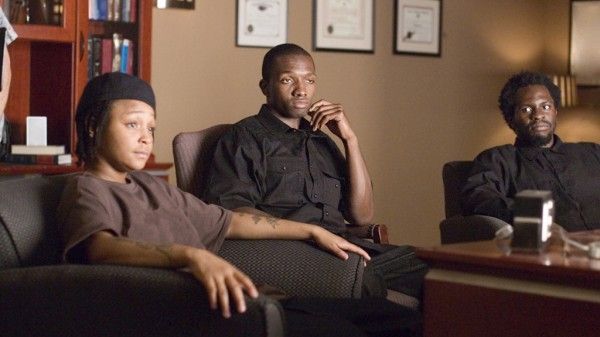 Most of the show's characters don't realize the serial killer is a myth. In a nice touch, Carcetti (Aiden Gillen), who was elected on the false belief that a state's witness was murdered when really the victim was hit by a stray bullet, buys into the serial killer myth, and that's what finally gets him to open the purse strings. Chris (Gbenga Akinnagbe) and Snoop (Felicia Pearson) are serial killers who could put Ted Bundy and Jeffrey Dahmer to shame when it comes to a body count, but because their drug-related killings aren't sexy enough and the victims aren't white enough, the murderous duo can fill vacant buildings with corpses and everyone will eventually forget about it.The tragedy doesn't come from the willful ignorance on the part of politicians. The tragedy is that the system is so entrenched on lies that the truth is a liability. Lester, Ronnie (Deirdre Lovejoy), and Sydnor (Corey Parker Robinson) can have Senator Clay Davis (Isiah Whitlock Jr.) dead-to-rights, and he'll still weasel out of it by simply lying harder.   Burrell can find his way to a cushy new job as long as he refrains from telling the truth about why he was fired from his old one. When faced with the order of juking the stats and being ashamed of his work, Daniels quits his job in order to protect Ronnie and his ex-wife. There's no room at the top for truth. If the world is built on big lies, it only falls to reason that the biggest liars will prosper.
Most of the show's characters don't realize the serial killer is a myth. In a nice touch, Carcetti (Aiden Gillen), who was elected on the false belief that a state's witness was murdered when really the victim was hit by a stray bullet, buys into the serial killer myth, and that's what finally gets him to open the purse strings. Chris (Gbenga Akinnagbe) and Snoop (Felicia Pearson) are serial killers who could put Ted Bundy and Jeffrey Dahmer to shame when it comes to a body count, but because their drug-related killings aren't sexy enough and the victims aren't white enough, the murderous duo can fill vacant buildings with corpses and everyone will eventually forget about it.The tragedy doesn't come from the willful ignorance on the part of politicians. The tragedy is that the system is so entrenched on lies that the truth is a liability. Lester, Ronnie (Deirdre Lovejoy), and Sydnor (Corey Parker Robinson) can have Senator Clay Davis (Isiah Whitlock Jr.) dead-to-rights, and he'll still weasel out of it by simply lying harder.   Burrell can find his way to a cushy new job as long as he refrains from telling the truth about why he was fired from his old one. When faced with the order of juking the stats and being ashamed of his work, Daniels quits his job in order to protect Ronnie and his ex-wife. There's no room at the top for truth. If the world is built on big lies, it only falls to reason that the biggest liars will prosper.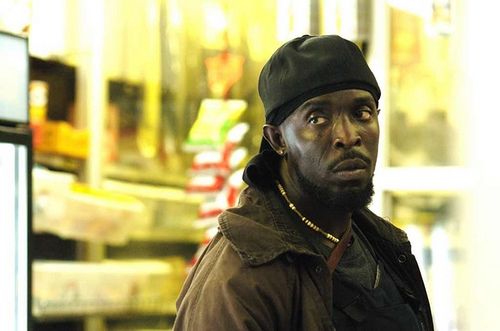 Rather than let us simply take a step back and marvel how other people are liars and other people are stupid for believing in those lies, Simon plays into our desires to see those lies come to fruition. The clearest example is in the sad tale of Omar Little (Michael K. Williams). Simon knows exactly what we want to see from this plotline. We want to see Omar arrive back in Baltimore and get his revenge on Marlo and his organization for the murder of Butchie (S. Robert Morgan). But the Omar we see isn't some avenging crusader. He's not the sharp, witty, lovable rogue of the past four seasons. He is alone and literally crippled as he limps around Baltimore trying to call out Marlo for a fight. It doesn't happen. There's no showdown at high noon. Instead, we get arguably the most shocking moment in the entire series: some kid shoots Omar in the head while he's buying cigarettes. There's no blaze of glory, and his death doesn't come at the hands of a major player. It is anti-climatic for the narrative we wanted to see, and yet perfectly suited to the story Simon wants to tell.However, Simon is still tied to his own thematic goals even at the expense of a believable narrative. For Simon, the show had to come full circle, because nothing can ever change in Baltimore. The institutions will never break or bend. Liars like Carcetti and Templeton will go on to greater glory. Sydnor will be the new McNulty, Michael (Tristan Wilds) will be the new Omar, and (in a forced, unconvincing transition) Dukie (Jermaine Crawford) will be the new Bubbles (Andre Royo). This doesn't mean there's reason to be cynical. People can change and evolve even if the institutions won't. McNulty and Lester can retire with their heads held high. Bubbles can forgive himself for accidentally killing Sherrod. Daniels may have to swallow the lie, but he can live honorably as a lawyer and know he protected the people he loves.
Rather than let us simply take a step back and marvel how other people are liars and other people are stupid for believing in those lies, Simon plays into our desires to see those lies come to fruition. The clearest example is in the sad tale of Omar Little (Michael K. Williams). Simon knows exactly what we want to see from this plotline. We want to see Omar arrive back in Baltimore and get his revenge on Marlo and his organization for the murder of Butchie (S. Robert Morgan). But the Omar we see isn't some avenging crusader. He's not the sharp, witty, lovable rogue of the past four seasons. He is alone and literally crippled as he limps around Baltimore trying to call out Marlo for a fight. It doesn't happen. There's no showdown at high noon. Instead, we get arguably the most shocking moment in the entire series: some kid shoots Omar in the head while he's buying cigarettes. There's no blaze of glory, and his death doesn't come at the hands of a major player. It is anti-climatic for the narrative we wanted to see, and yet perfectly suited to the story Simon wants to tell.However, Simon is still tied to his own thematic goals even at the expense of a believable narrative. For Simon, the show had to come full circle, because nothing can ever change in Baltimore. The institutions will never break or bend. Liars like Carcetti and Templeton will go on to greater glory. Sydnor will be the new McNulty, Michael (Tristan Wilds) will be the new Omar, and (in a forced, unconvincing transition) Dukie (Jermaine Crawford) will be the new Bubbles (Andre Royo). This doesn't mean there's reason to be cynical. People can change and evolve even if the institutions won't. McNulty and Lester can retire with their heads held high. Bubbles can forgive himself for accidentally killing Sherrod. Daniels may have to swallow the lie, but he can live honorably as a lawyer and know he protected the people he loves.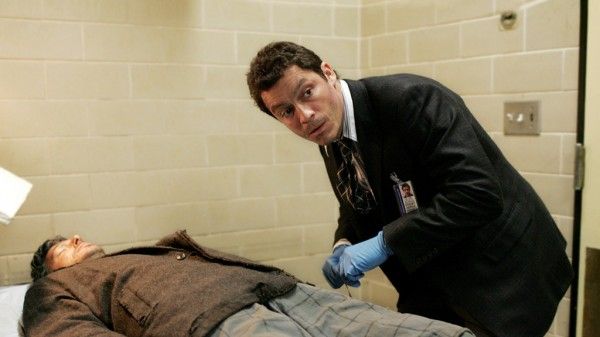 The final scene of the series is McNulty looking out on the city of Baltimore as "Way Down in the Hole" plays over a montage of what the future holds for the characters we've come to know. Some of their fortunes are uplifting and some are depressing. There isn't one answer to these people lives. Intelligence and cunning are still the most powerful attributes an individual can have, but there's no guiding principle in the world of The Wire. There's no easy answer. There's no serial killer. There's no benevolent overseer to stop the crime. There's no CSI lab with all the answers. Even Marlo, a mostly boring and heartless character, finally reveals some sense of a soul when he cries out at the end, "My name is my name!" Omar may be dead, but he made sure the street labeled Marlo as a coward. Ultimately, the show doesn't even have a moustache-twirling villain. There are just people. David Simon and his brilliant cast and crew did everything in their power to depict these people are honestly and fairly as possible while still serving a plotline dreamed up in a writers room.Fiction is a lie. It can be a lie to entertain, to distract, and to escape. But just because fiction is technically a lie, that doesn't mean it can't be true. If the story is honest, and the characters are honest, and the emotions are honest, and setting is honest, and the desire to be as truthful as possible within the bounds of fiction is honest, then there will be truth. Then we're not just buying into a lie and living in ignorance.The Wire, a show unlike any other in the history of television, found truth in the big lie.[As I stated in my review of season one, these reviews were done without any research or comment into the behind-the-scenes making of the series. In my final Seasoned installment on The Wire, I will finally look at the behind-the-scenes commentary and incorporate it into my own thoughts on the series.]
The final scene of the series is McNulty looking out on the city of Baltimore as "Way Down in the Hole" plays over a montage of what the future holds for the characters we've come to know. Some of their fortunes are uplifting and some are depressing. There isn't one answer to these people lives. Intelligence and cunning are still the most powerful attributes an individual can have, but there's no guiding principle in the world of The Wire. There's no easy answer. There's no serial killer. There's no benevolent overseer to stop the crime. There's no CSI lab with all the answers. Even Marlo, a mostly boring and heartless character, finally reveals some sense of a soul when he cries out at the end, "My name is my name!" Omar may be dead, but he made sure the street labeled Marlo as a coward. Ultimately, the show doesn't even have a moustache-twirling villain. There are just people. David Simon and his brilliant cast and crew did everything in their power to depict these people are honestly and fairly as possible while still serving a plotline dreamed up in a writers room.Fiction is a lie. It can be a lie to entertain, to distract, and to escape. But just because fiction is technically a lie, that doesn't mean it can't be true. If the story is honest, and the characters are honest, and the emotions are honest, and setting is honest, and the desire to be as truthful as possible within the bounds of fiction is honest, then there will be truth. Then we're not just buying into a lie and living in ignorance.The Wire, a show unlike any other in the history of television, found truth in the big lie.[As I stated in my review of season one, these reviews were done without any research or comment into the behind-the-scenes making of the series. In my final Seasoned installment on The Wire, I will finally look at the behind-the-scenes commentary and incorporate it into my own thoughts on the series.]